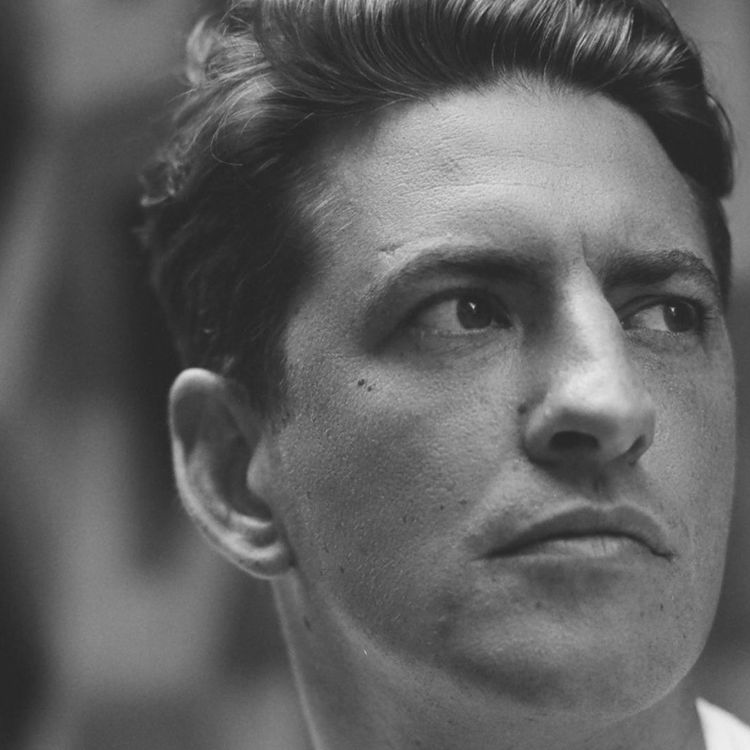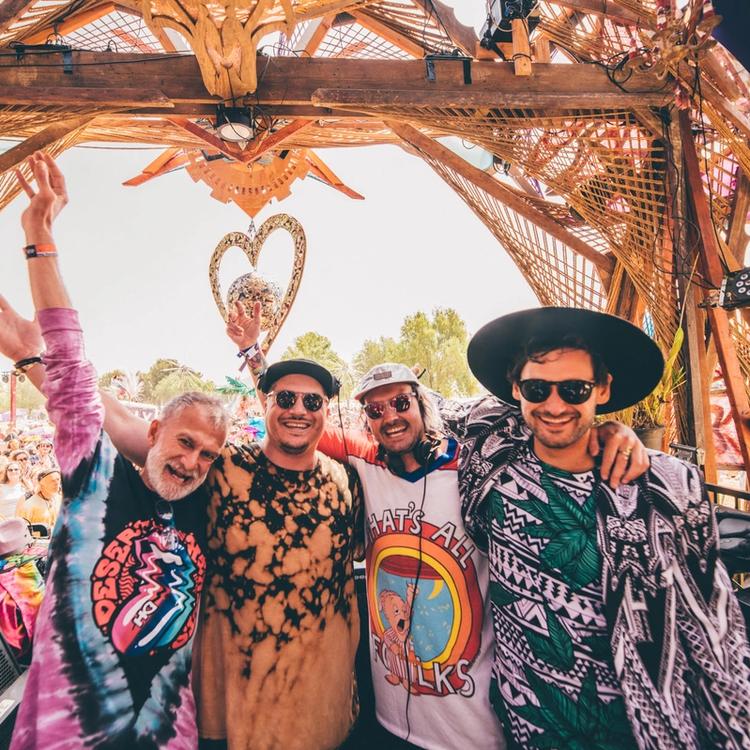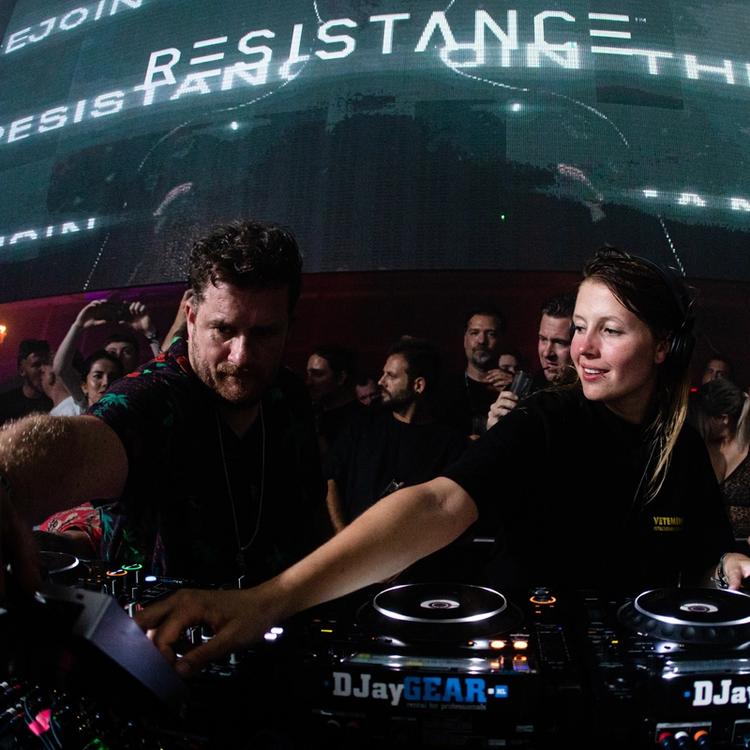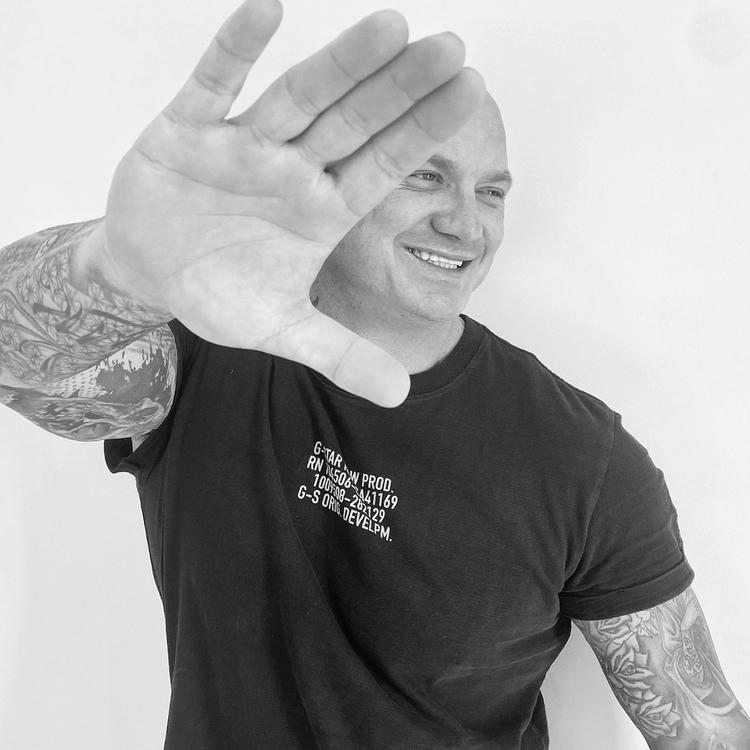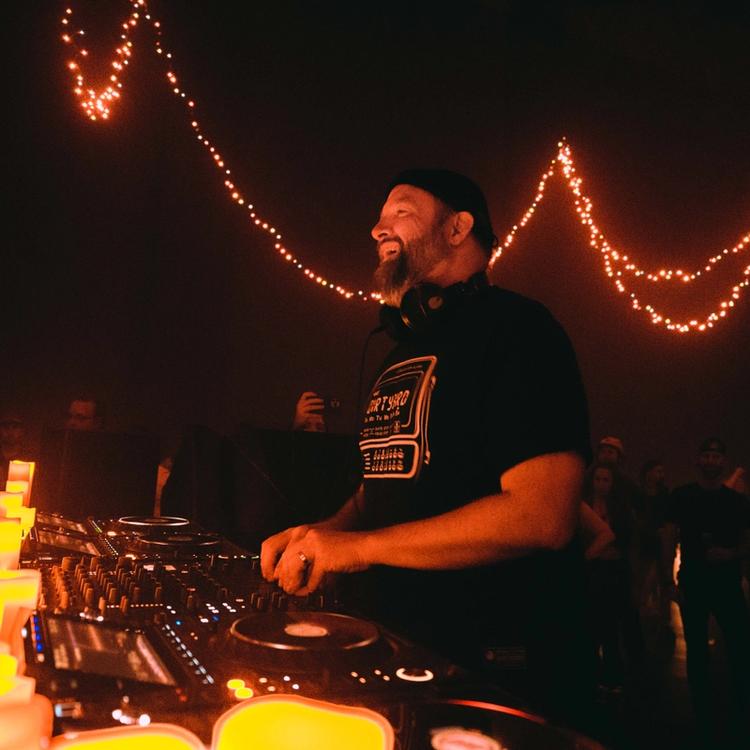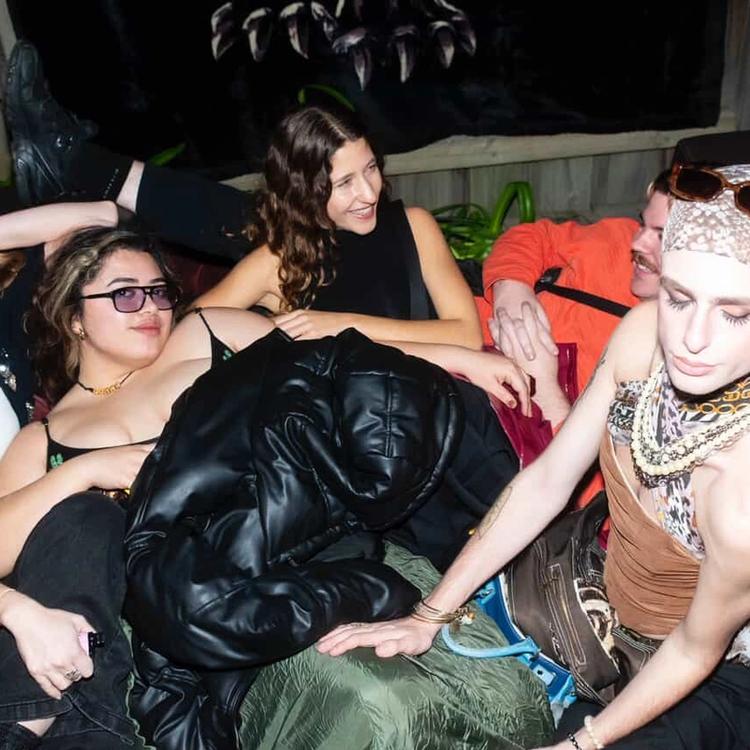Lubelski's 'Happy Accidents' LP Explores Improvisation and Modular Synthesis
One of the most fascinating aspects of music is the relationship between artists and their chosen apparatus of creation. Jimi Hendrix didn’t simply play his guitars; he had a relationship with them. Every time he stepped into the studio or onto the stage, he further explored that relationship, and listeners continue to marvel at that exploration to this day.
Lubelski, the ascending LA-based producer, DJ, and label boss of Percomaniacs, has a studio full of different apparatuses of creation. And his latest LP, Happy Accidents, out now on Dirtybird Records, explores his relationship with modular synthesizers.
Where traditional, non-modular synthesizers retain a particular sound pallet, some of which have become unmistakable throughout decades of electronic music (the low-end womp of the Roland TR-808, for example), modular synthesizers allow the artist to create sounds that have never existed before.
Every different knob and cable on a modular rig alters the sound in its own way. There are infinite configurations and settings, and that level of creative control opens the door to pure improvisation.
Lubelski, real name Jake Lubell, crafted Happy Accidents through improvisation, and the title of the album refers to the basis of all 12 tracks.
“A happy accident is a found sound,” says Lubell over a recent Zoom call. “I’m letting the music itself be found in my modular jams. It’s not anything that’s pre-conceived. It’s finding the music as opposed to sculpting it.”
During Summer 2021, Lubell broadcast a series of modular jams on his own Twitch channel, under the same name: Happy Accidents. Every track on the album resulted from these jams in some way or another.
“I was able to go back into those individual recordings and nitpick what I wanted to use,” Lubell says. “Maybe I liked the drum idea and I would use that, or maybe I just like one little lead and I would start a new song based on it.”
Every time Lubell started a new stream, he searched for something he didn’t know that he wanted to find, a relationship with his modular rig that he likens to a conversation.
“It’s a conversation between me and the synthesizer,” Lubell says. “I might say for it to do something, and then it tells me something back that I didn’t expect.”
This relationship with modular persisted long before Lubell even started the Lubelski project. While attending UC Santa Cruz, he took an electronic sound synthesis course, and the school housed an extensive modular rig that students used for assignments.
One key aspect of modular synthesizers is they can grow to immense sizes. A single modular synthesizer holds a series of different modules. There is no limit to the total number of modules a synth can include, and each provides a unique quality to the music.
Lubell used roughly 20 different modules in his setup for a Happy Accidents jam. Artists like deadmau5 and Trent Reznor of Nine Inch Nails have synthesizers composed of hundreds of individual modules.
Each module furthers its relationship with the hardware, refining its ability to make music that sounds unequivocally singular.
“It’s like the LEGOs for adults,” says Lubell with a laugh.
Lubell applies jargon comparable in its esotericism to constitutional law or nuclear physics in discussing modular synthesis. Using terms like “ring modulation attenuation” as casually as most people use words like “the,” which expands further as he describes techniques he applied during the Happy Accidents jams.
“One thing I really love doing is throwing a pitch sequence on a filter cutoff with a high resonance on a filter. You can get these really interesting tones that you can’t get just by sequencing the pitch of an oscillator,” Lubell says. “The pitch comes from the resonance of the frequency as opposed to the actual pitch of the thing making the sound. If that makes sense.”
Most people would have lost him at pitch sequence. However, Lubell has been fostering his relationship with modular for years. It also makes sense to someone like DJ, producer, and head of Dirtybird, Claude VonStroke, who has his own decades-long relationship with synthesizers and electronic production.
Lubell and VonStroke, real name Barclay Crenshaw, had been in close proximity long before Lubell began producing Happy Accidents.
Lubell put out his debut EP on Dirtybird, Impulse Response, in November of 2019, with a second EP, Lost My Senses, landing in September of 2020, as well as several offerings on different Dirtybird compilations.
As a seasoned Dirtybird Player, Crenshaw asked Lubell to contribute to Dirtybird Live, Dirtybird’s Twitch channel, over quarantine. Most of the programming centered around DJ sets, but Lubell had something different in mind.
“I didn’t want to be another DJ doing a DJ thing on Twitch. Everyone was doing that,” Lubell says. “I felt like I could really take the opportunity to dive into the live modular stuff.”
And so Lubell started Patchwork Sessions, a weekly live modular session very similar to Happy Accidents. The primary difference between the two shows is Patchwork Sessions wasn’t building towards a specific outcome.
Crenshaw was aware of Lubell’s relationship with modular. Yet, after witnessing Lubell captivate audiences during Patchwork Sessions, Crenshaw asked Lubell for an LP’s worth of material based on modular sessions, a humbling and contemplative moment for Lubell.
“I’ll be totally honest I was a bit reluctant at first,” Lubell says of releasing an album on Dirtybird. “I have a very big vision for what my music should be, and I didn’t want to relinquish creative control of an album to somebody else, but luckily Barclay trusted me. He said ‘This album is about you. I want you to do your thing.’ So it felt really great to have someone I’ve looked up to for years ask me to do something like that.”
Following Lubell’s agreement, he migrated to his own Twitch and launched Happy Accidents. Crenshaw gave a strict deadline for the album, so Lubell spent six weeks streaming jams and then another three weeks dissecting and reworking the recordings into the final versions for the record.
The album took nine weeks from conception to completion. The result of the expedited process is 12 heavily technical tracks balanced by a sense of raggedy humanity.
The improvisation in the jams provided an authentic quality to the foundation of each track while the quick turnaround left limited time to scrutinize the minor tweaks. These tweaks exist as little reminders of how despite house music’s metronomic underpinnings, there is room for some soul, some mortality, an idea advanced by Lubell’s relationship with production.
“I know myself, and if I keep working on something it will be a totally different song,” Lubell says. “I would rather call it, be done with it, and move on to the next project.”
Perhaps the only track on the album that received meticulous attention to detail was “Ice Cream Cone,” the co-production between Crenshaw and Lubell with Life On Planets contributing vocals.
“[Crenshaw] is way more of a perfectionist than I am,” Lubell says. “He really knows his production and how he wants things to sound. He’s like ‘If it’s not perfect, I’m not putting it out.’ He’s sort of like the Gordon Ramsey of dance music. If it doesn’t taste good it’s not going on the plate.”
Lubell finalized the bulk of Happy Accidents in three weeks. Crenshaw spent over two weeks on “Ice Cream Cone,” by itself. Yet despite their completely inverse relationships with their creative apparatuses, they explored those relationships together. It’s truly fascinating, and the listeners get to marvel at the results.







